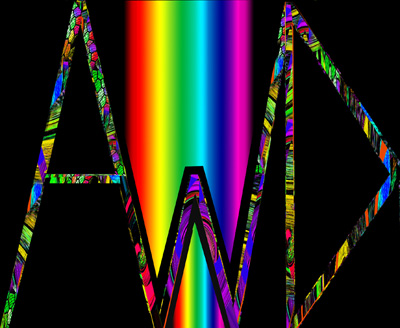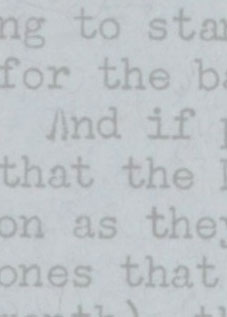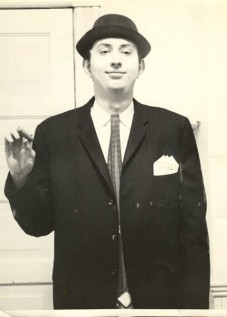James Semark: A Second Chance

Artists Workshop Detroit logo by Howard Weingarden, 2004
A Second Chance:
The Detroit Artists Workshop and Urban Revitalization
“…The setting is here; the town shows evidence of the development of it. Towns go through cycles of development just as a person’s individual ego. You first have a sibling ego and everything you do is copied after “mamma,” which is New York, the chief influence in the U.S. among jazz musicians…I’m bringing all that in to show how – now, the fact that we’ve gone through this big recession – and this was due to the fact that so much revenue has gone out of Detroit, because of political and economic conditions. The town has been reduced in population… This will eventually move it away from a “one-folk’s town” concept and give it a more cosmopolitan development… This is the way that I look at it. All of these things have to do with the way the musical culture evolves in Detroit…”
– Harold McKinney
For most of us who have lived here and left it – coming back to Detroit is like living in a place where the memories stare you in the face – the land of de ja vu – the land you dream about for forty years, turning this corner, walking across that street. So it was the other day, when Brother John and I turned the corner at Second and Hancock, past the apartment where we freaked out over Burroughs and Coltrane in 1964 – past the old trees where I stood restless with energy decades ago, past the old brick buildings which were soaked with age even in those days, where the halls echoed of politics.
Where has that energy gone? Why are things the way they are? What happened to all the ideas we fought for as proud revolutionaries? I look in your face, my friend, and although it’s inappropriate for me to ask (due to age, sex, race, or other differences), I still ask the burning question in my mind: where are you taking it?
Perhaps you wouldn’t understand my question. No matter. A couple decades ago, I wouldn’t have understood it, either. Today, at 5 p.m., the freeway is choked with bright young office workers fleeing the city and I’m heading the other way, into the metropolis at that hour. Am I out of my mind? On the contrary, my friend, I’m one of the survivors of the Artists Workshop, founded in Detroit forty years ago, and I’m thinking that maybe we have a second chance.
In November of 1964, the Artists Workshop was formed, and soon became a gateway of culture, from the past and into the future. It was formed at the tail end of a golden age of culture in Detroit, an age that knew Motown, the Minor Key and the Bluebird Inn. In the years before the Workshop, clusters of musicians, poets and artists had formed cooperatives and had used them as springboards into national recognition. During its existence, the Workshop laid the foundation for the flourishing, in later years, of the Cass Corridor culture and the “tribes” of artists who lived there. The list of well-known people and cultural icons is long, and yet, forty years later, what is of interest to us is the creative landscape that continually spawned these individuals.
Without creativity and culture, at grass-roots levels, urban revitalization is next to impossible. Yet, whenever these factors are allowed to grow, those communities become strong in themselves, regardless of which way the political or economic winds shift.
At the core of Detroit movements was cooperative effort – there were kernels of people with genius potential who began empowering each other with their creativity. Creativity empowers the core beliefs of individuals from the inside – not from without. When one group of artists arises and begins taking risks with the limits of their creative expression, other people are infected and begin doing it, as well. It happens non-verbally on a spontaneous scale. Soon, whole communities are collaborating and networking. Also, there’s a natural evolution from core creativity to entrepreneur-ship and small business. As people become financially literate, they begin using the tools of the system to benefit their lifestyle and financial independence, rather than the system using them.
The Artists Workshop is another model in a history of models – cooperatives – examples of people living and working in communities and empowering themselves from the ground up. What was unique about the Workshop was its intensely communal lifestyle. It was a 24 x 7 camp of musicians, poets, artists, and film-makers, with each individual experiencing accelerated growth in months, what would otherwise have taken years (or never at all). It was a fast-track to grass-roots community leadership.
What about the second chance? Here we are, in 2004, and the world is a much different place than it was forty years ago. Rather than write a book about it, I prefer to invite people to take the major environmental factors and socio-economic factors, and look at them all in one focus, to get an idea where the world is going. If one does this, one will perceive the world changing more drastically in the next ten years, than in the previous forty. Many things are uncertain. In the realm of probability, national boundaries will fall and world economy will rise, motivated by planetary survival. Due to the massive failure of industrial civilization in its metropolitan area, Detroit is an ideal breeding ground for a new social perspective. A hint of that perspective can be found in what we lived and preached in the Artists Workshop decades ago.
The bottom line is that the world – and the city – needs an Artists Workshop now, more than it did forty years ago, the motivating factor being social, and ultimately, world survival. In all probability, the export of atmosphere-polluting vehicles will cease and will be replaced by an export of culture – a cultural perspective that reorients people to a new lifestyle having its root in global consciousness. We need the communal living-space and the fast-track to community leadership. Whether the Artists Workshop Version Two becomes a forum for creativity, or if it expands to a whole community, complete with living-space, its presence in the creative landscape will be a health and growth factor in the revitalization of Detroit (and, not to say the least, the planet).
James Semark, Detroit 6/11/2004




